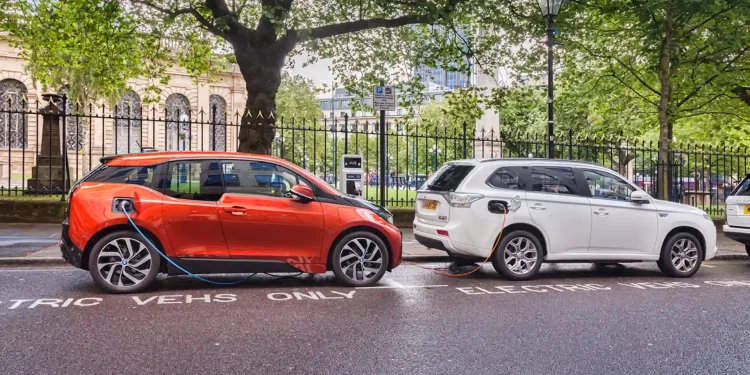The Chancellor said that the Office for Budget Responsibility had predicted by 2025, half of the car owners in the United Kingdom would be driving electric vehicles
Electric Vehicle owners in the UK will be paying vehicle excise duty from 2025 onwards, Chancellor Jeremy Hunt announced in his Autumn Statement 2022. As of now, zero-emission vehicles registered on or after 1st April 2017 enjoy zero road tax. This means that a fully electric car is exempt from excise duty. However, with the increasing uptake of EVs, the UK government aims to make the system of applying road tax “fairer” for all stakeholders.
The announcement triggered mixed reactions among industry insiders and EV users. On the one hand, the RAC Group seems to be supporting the road tax to be imposed, while on the other hand, the Automobile Association is afraid the imposition of excise duty would dampen the EV adoption rate.
The Chancellor said that the Office for Budget Responsibility had predicted by 2025, half of the car owners in the United Kingdom would be driving electric vehicles. So, in order to keep the tax system fair for the owners of both EV and ICE cars, Jeremy Hunt has decided to impose a vehicle excise duty on electric cars from 2025. The Chancellor maintained that the company car tax on electric vehicles would be lower than that on ICE ones.
The Reaction of Industry Insiders
Industry insiders are divided on the justifiability of the new tax. Nicholas Lyes of RAC believes that the owners of electric vehicles have enjoyed years of 100% tax exemption, and now with the rising adoption of EVs, it is fair that they are taxed in order to maintain the roads effectively. The company is of the opinion that vehicle excise duty won’t impact the buyers’ decision to choose EVs over petrol cars. The Local Government Association has supported the move as well.
The Automobile Association, however, has a different take. It feels that the new tax will delay the rate of EV adoption, and as a result, the environmental benefits that come with the shift to EVs will get delayed as well. The buyers will have no incentive to choose an EV over an ICE car. Even the supplementary tax (imposed on cars above £40,000) that the EVs are exempt from will start being applicable to them from 2025 onwards.
The Reaction of the End Users
As far as ordinary Brits are concerned, online chatter indicates that they are in support of this development. However, a significant number of people on social media want the tax to be based on the weight of the car, the number of wheels, and the mileage of the car. They want smaller EV owners to pay a smaller amount of tax than what is paid by the owners of bigger EVs.
The Fourth Power Law
According to the fourth power law, the damage to the road done by the wheels of vehicles increases exponentially with the increase in the axle weight of the vehicles. The damage is proportional to the fourth power of the axle load. This means that a vehicle having an axle load of 1000 KG will result in 16 times greater damage to the road compared to a vehicle having an axle load of 500 KG. Hence people are of the opinion that heavier vehicles must fall under higher tax brackets while lighter ones must be under the lower tax bracket.
A Smart Decision by Hunt?
Electric vehicles are still considered cars for the rich. As such, imposing vehicle excise duty on these cars would not result in intense outrage from ordinary people. Was this the logic behind Jeremy Hunt’s decision? The Chancellor might be testing the waters with this rather benign announcement. If the public accepts this decision with minimal fuss, it will bolster his plans to take some harsh actions further to reverse the country’s economic instability.


















